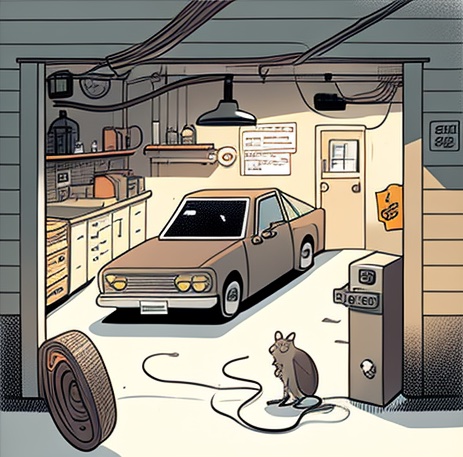
Rats can indeed cause damage to a parked car and its wiring. These rodents are known for their sharp teeth and persistent gnawing behavior, which can lead to damage in various components of a vehicle. Some possible ways rats can damage a parked car and its wiring include:
-
Chewing on wires: Rats have a natural instinct to gnaw on things, including car wiring. They can chew through the insulation around wires, leaving the wires exposed and potentially causing short circuits, electrical issues, or even fires.
-
Nesting: Rats may build nests in the engine compartment, air filter housing, or other areas of a car, using materials like insulation, plastic, and wires. This can cause problems in airflow, electrical systems, or other components, depending on the location of the nest.
-
Damage to hoses and belts: Rats can also chew on rubber hoses and belts, which can lead to fluid leaks or a malfunctioning engine.
-
Contamination: Rat urine and droppings can cause corrosion on metal surfaces, and may lead to a foul odor inside the car if they find their way into the cabin air filter or ventilation system.
To minimize the risk of rat damage to a parked car and its wiring, consider the following preventative measures:
Park in a well-lit, clean area.
- Keep the garage or parking area free of clutter, food sources, and potential nesting materials.
- Use rodent repellents, such as mothballs or commercial rodent deterrent products.
- Check your car’s engine compartment, air filter, and other areas for signs of rodents or their droppings regularly.
- Cover or block any openings where rats might enter the vehicle.
- Consider using rodent-proof materials or protective coverings for wires and other components, such as rodent-resistant tape or wire conduit.